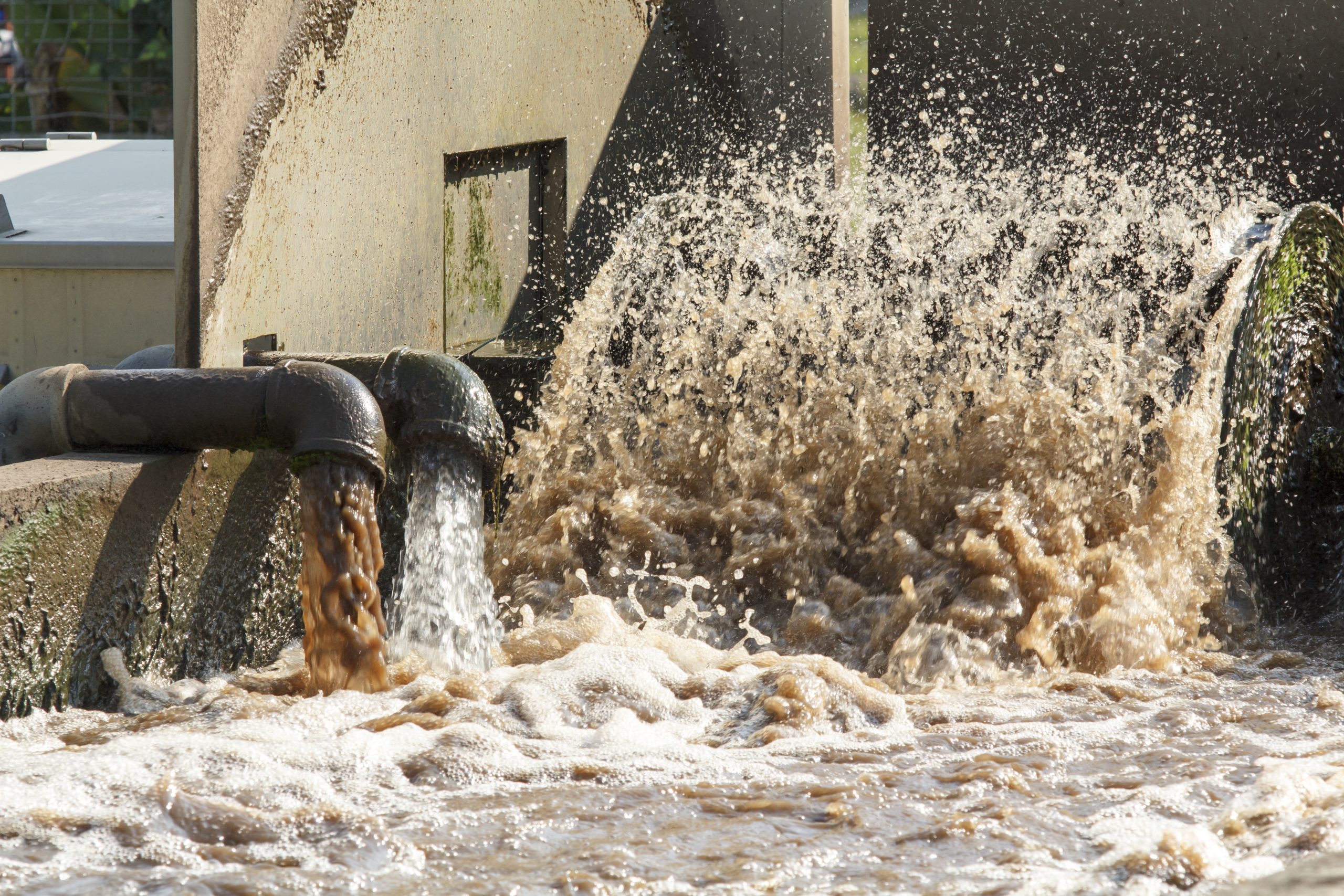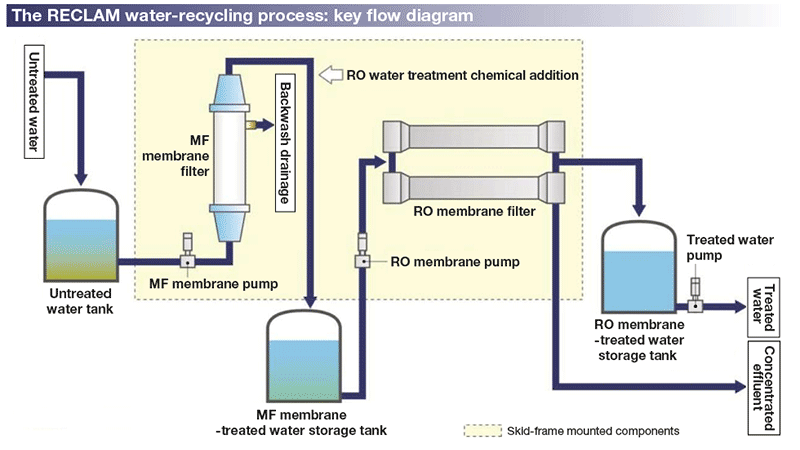Industrial Waste Water Treatment-- Industrial-Grade Water Filtration and Filtration Solutions
Industrial Waste Water Treatment-- Industrial-Grade Water Filtration and Filtration Solutions
Blog Article
The Role of Industrial Waste Water Treatment in Environmental Defense
The effective treatment of commercial wastewater is significantly identified as a cornerstone of ecological defense, offering to mitigate the harmful influences of contaminants on marine ecosystems. As sectors develop and increase, the demand for durable wastewater monitoring solutions ends up being vital to make sure conformity with ecological laws and promote lasting methods. This necessitates a better assessment of the therapy processes utilized and their effects for both environmental health and source recuperation. Comprehending these characteristics increases crucial concerns regarding the equilibrium in between industrial development and ecological integrity, triggering additional exploration of the courses forward.
Significance of Waste Water Therapy
The relevance of wastewater treatment can not be overemphasized, as it plays a critical function in protecting public health and wellness and the setting (Industrial Waste Water Treatment). Reliable wastewater therapy systems are important for removing contaminants from industrial discharge, thus protecting against hazardous materials from going into all-natural water bodies. This process reduces the danger of waterborne illness, which can arise from neglected wastewater, and safeguards community health
Moreover, treated wastewater can be safely recycled in various applications, such as irrigation and commercial procedures, advertising sustainable water management practices. By reusing water, industries can considerably minimize their freshwater intake, contributing to source preservation.
Along with wellness benefits, wastewater treatment is essential for preserving aquatic environments. Contaminants in untreated wastewater can cause the destruction of water quality, damaging water life and interrupting eco-friendly equilibriums. By dealing with wastewater before discharge, markets assist preserve the honesty of neighborhood communities and promote biodiversity.
Additionally, regulative compliance is an essential facet of wastewater management. Abiding by established environmental requirements not only avoids lawful consequences but also boosts a company's online reputation as a responsible company person. In significance, efficient wastewater therapy is vital for protecting public health, safeguarding the atmosphere, and promoting lasting industrial techniques.

Sources of Hazardous Waste Water
Industrial wastewater originates from a selection of resources, each adding to the intricacy of treatment procedures. Mostly, these sources consist of producing facilities, refineries, and handling plants, which generate effluents as a byproduct of their operations. Industries such as fabrics, pharmaceuticals, food and drink, and petrochemicals create substantial volumes of wastewater, commonly loaded with impurities including hefty metals, organic compounds, and nutrients.
In enhancement to production, agricultural tasks add to industrial wastewater with runoff and effluent from animals operations and plant processing. The meat and dairy industries, specifically, are known for releasing high degrees of biochemical oxygen demand (BODY) and pathogens.
Moreover, mining and mineral handling activities create wastewater containing suspended solids and harmful chemicals. Power generation plants, specifically those utilizing fossil fuels, also contribute wastewater via cooling down systems and chemical cleaning procedures.
Each of these sources provides unique challenges relating to the make-up and volume of wastewater created, demanding tailored therapy remedies to mitigate their environmental effect. Understanding the varied origins of industrial wastewater is crucial for developing effective monitoring approaches targeted at safeguarding water resources and promoting sustainable commercial techniques.
Treatment Processes and Technologies
Reliable therapy procedures and modern technologies are crucial for handling industrial wastewater and alleviating its ecological effect. Various techniques are used to eliminate impurities, adjust to different wastewater attributes, and follow regulatory requirements.
Physical treatment procedures, such as sedimentation and purification, help with the removal of suspended solids. These techniques are commonly made use of as preliminary actions to decrease the tons on succeeding treatment stages. Chemical therapy, including neutralization, flocculation, and coagulation, addresses dissolved toxins by altering their chemical buildings, making them much easier to divide from water.
Biological treatment technologies, such as turned on sludge systems and biofilters, make use of microorganisms to break down organic matter and nutrients. These techniques are specifically efficient for naturally degradable waste streams, promoting the natural disintegration procedure. Advanced therapy technologies, such as membrane filtering and advanced oxidation procedures, deal improved elimination effectiveness for challenging contaminants, consisting of hefty steels and persistent organic compounds.
Each of try here these treatment procedures can be set up in numerous combinations to create tailored options that satisfy details commercial demands. The choice of innovation relies on factors such as the kind of wastewater, desired treatment end results, and financial considerations, ensuring that industries can operate sustainably while minimizing their environmental impact.
Environmental Advantages
Carrying out robust wastewater treatment refines not only guarantees conformity with governing standards however additionally yields significant ecological advantages. Reliable therapy of industrial wastewater decreases the discharge of unsafe contaminants into natural water bodies, thereby shielding aquatic communities. By eliminating harmful materials, hefty metals, and pathogens, these procedures aid preserve biodiversity and promote healthier ecosystems.
Additionally, treated wastewater can be repurposed for different applications, consisting of watering and industrial procedures, minimizing the need for fresh water sources. This reuse not just preserves water but likewise decreases the stress on neighborhood water materials, which is particularly vital in water-scarce areas.
Furthermore, effective wastewater treatment reduces the danger of dirt and groundwater contamination, guaranteeing the integrity of neighborhood settings. Industrial Waste Water Treatment. By preventing the seepage of harmful substances, sectors add to the general health of surrounding communities and areas, improving public trust fund and cultivating sustainable commercial techniques
Regulative Structure and Conformity
A comprehensive regulative structure governs the therapy of commercial wastewater, ensuring that sectors follow strict conformity criteria. Different nationwide and regional guidelines, such as the Tidy Water Act in the United States, established forth limits on the discharge of contaminants right into visit water bodies. These policies are designed to secure marine communities and public health and wellness by mandating that sectors execute suitable therapy technologies.
Compliance with these guidelines often includes acquiring authorizations, conducting regular monitoring, and reporting discharge levels to regulative authorities. Failing to abide can cause substantial penalties, including fines and operational restrictions, thus incentivizing markets to embrace finest techniques in wastewater monitoring.
In enhancement to governmental laws, many industries also abide by voluntary criteria and certifications, such as ISO 14001, which advertise lasting ecological monitoring techniques. In addition, stakeholders are significantly supporting for boosted openness and responsibility in wastewater administration, pushing for stricter enforcement and more strenuous coverage demands.
Ultimately, a durable regulative framework not this website just offers to reduce environmental threats yet likewise fosters a society of sustainability within the industrial sector, urging continual enhancement in wastewater treatment procedures.
Final Thought

The efficient treatment of commercial wastewater is progressively acknowledged as a cornerstone of ecological security, serving to minimize the harmful impacts of toxins on water ecosystems. Reliable wastewater treatment systems are essential for getting rid of contaminants from commercial discharge, thus preventing unsafe compounds from entering natural water bodies.Industrial wastewater stems from a range of resources, each contributing to the intricacy of therapy processes. Reliable treatment of commercial wastewater reduces the discharge of dangerous pollutants into all-natural water bodies, thereby securing aquatic environments.In conclusion, industrial wastewater therapy is essential for securing ecological integrity and promoting lasting water management.
Report this page